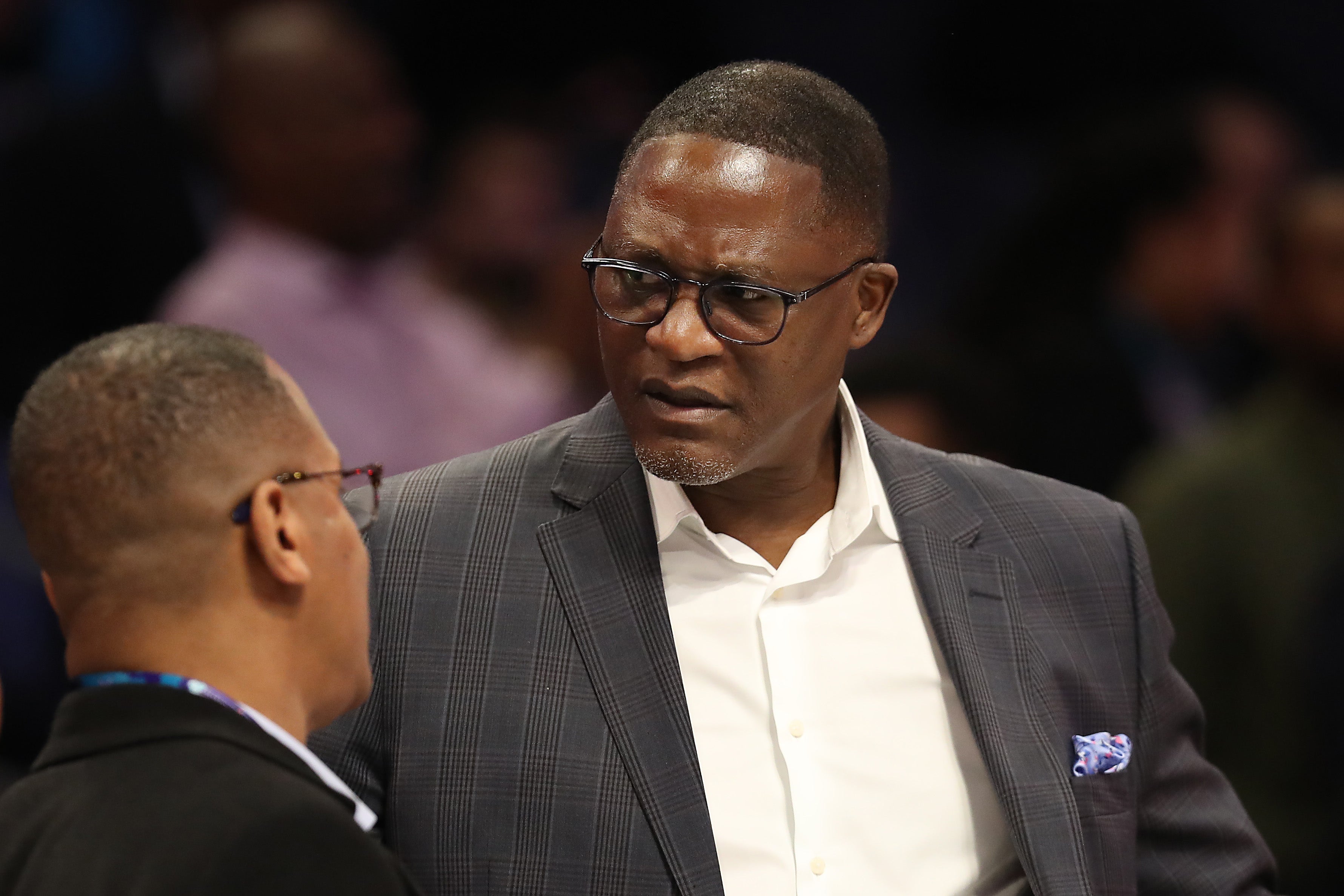Atlanta restaurant apologises to Dominique Wilkins after he accuses it of racist treatment
Le Bliboquet is now promising to provide ‘diversity, equity and inclusion training’ for employees to ensure that the restaurant is a place where all feel welcome

An Atlanta restaurant issued a second, more extensive apology to Dominique Wilkins on Monday and promised it would provide “diversity, equity and inclusion training” for its employees while re-evaluating its dress code. The basketball Hall of Famer and Atlanta Hawks icon had claimed on Saturday that he was the victim of racist mistreatment there.
“In my many years in the world, I’ve eaten at some of the greatest restaurants in the world, but never have I felt prejudice or been turned away because of the colour of my skin, until today,” Wilkins tweeted. He added the phrase “Turned away because I’m black” as a hashtag, and included the name of Le Bilboquet, a restaurant in Atlanta’s popular Buckhead neighborhood, as well as a photo of its exterior seating.
“We sincerely apologise to Dominique Wilkins for the events that occurred on May 22,” Le Bilboquet said Monday. “No patron of our restaurants should be made to feel unwelcome or less than, and for that we are deeply sorry. It was never our intention to make Mr. Wilkins — or anyone else for that matter — feel that way at our restaurant.”
In the restaurant’s initial reaction Saturday evening (via the Atlanta Journal-Constitution), it offered no apology but instead pointed to “consistent complaints from our patrons regarding other guest’s wardrobe choices.”
“As a result, to protect our restaurant’s culture, we installed a minimum standard in our ‘business casual’ attire dress code which includes jeans and sneakers but prohibits baseball caps and athletic clothing including sweat pants and tops,” Le Bilboquet said at the time. “Though the definition of ‘casual’ is ever evolving, we strive to maintain our policy requirements daily but it isn’t a perfect system.”
Wilkins, 61, said on Twitter on Saturday that he was initially told the restaurant had no tables available before hearing that he was “not dressed fashionably enough.” His photo appeared to show several empty tables, and he said he checked ahead of time on whether he would need a reservation.
“I would have been fine if they said just no tables,” he tweeted. “But they looked me up and down before that and then said that and to add insult, talked about how my clothes were not appropriate.”
“Racism knows no boundaries,” Wilkins added.
Wilkins’s comments garnered a notable amount of concern online, in no small part because he is arguably second only to Hank Aaron as the greatest figure in Atlanta’s professional sports history. Nicknamed “The Human Highlight Reel” for his jaw-dropping dunks and other feats of athleticism, Wilkins played for the Hawks from 1982 to 1994 and is the franchise’s career leader in games played, points, points per game and value over replacement player.
In 2015, the Hawks installed a 13.5-foot-tall, granite statue of Wilkins outside their Atlanta arena. He currently serves as their vice president of basketball and as a special adviser to their CEO, and he is an analyst on their game telecasts.
Wilkins’s tweets about the restaurant also drew attention to previous complaints by other would-be patrons that it inconsistently enforces a dress code in ways that could be construed as racist.
“I watched the host cancel a black couples’ reservation when they arrived because of the ‘dress code’ but my [boyfriend] & I had on outfits that were practically identical to theirs,” a Yelp reviewer wrote in February. “A dress code was never mentioned to us. (we are white.)”
On Sunday, Le Bilboquet issued an apology to Wilkins in which it said, “We in no way intended for him to feel unwanted, and welcome an open dialogue with him. . . . We continue to strive to manifest our dining experience in a way that is exciting and most importantly, inclusive.”
Monday’s statement included an admission that “our current policy [on attire] is subject to interpretation and can be unintentionally demeaning and divisive.” The restaurant said it was “eliminating any ambiguities that may lead to misunderstandings” about its dress code, in addition to providing diversity training.
“We will not tolerate implicit or explicit bias,” Le Bilboquet declared. “We have done and will continue do the work to ensure our restaurant is a place where all feel welcome.”
The restaurant’s general manager told Atlanta’s WGCL-TV on Monday that Wilkins was turned away because he was “in track pants.”
“We were being consistent with our policy,” said Mark Hoefer, the general manager. “If we had let him because of his celebrity status, we would have been discriminatory toward everyone we’ve turned away, based on that same policy.”
Wilkins described his outfit that day to the station as “very sporty, casual — I had a nice pair of casual pants on with a stripe, I had a very nice, red shirt and I had sneakers on.”
After being told that Le Bilboquet was, as he put it, “trying to keep a level of elegance,” Wilkins said he saw other patrons arriving in shorts.
Despite Hoefer’s assertion that Wilkins’s treatment had “nothing to do with the colour of his skin,” the one-time NBA scoring leader was not convinced.
“People try to flip this, twist it and turn it, and make it something that it’s not, instead of what it is,” Wilkins said.
“I know racism,” he added. “I grew up with it. I’ve had a cross burning in my yard when I was in high school.”
The Washington Post
Join our commenting forum
Join thought-provoking conversations, follow other Independent readers and see their replies
Comments
Bookmark popover
Removed from bookmarks